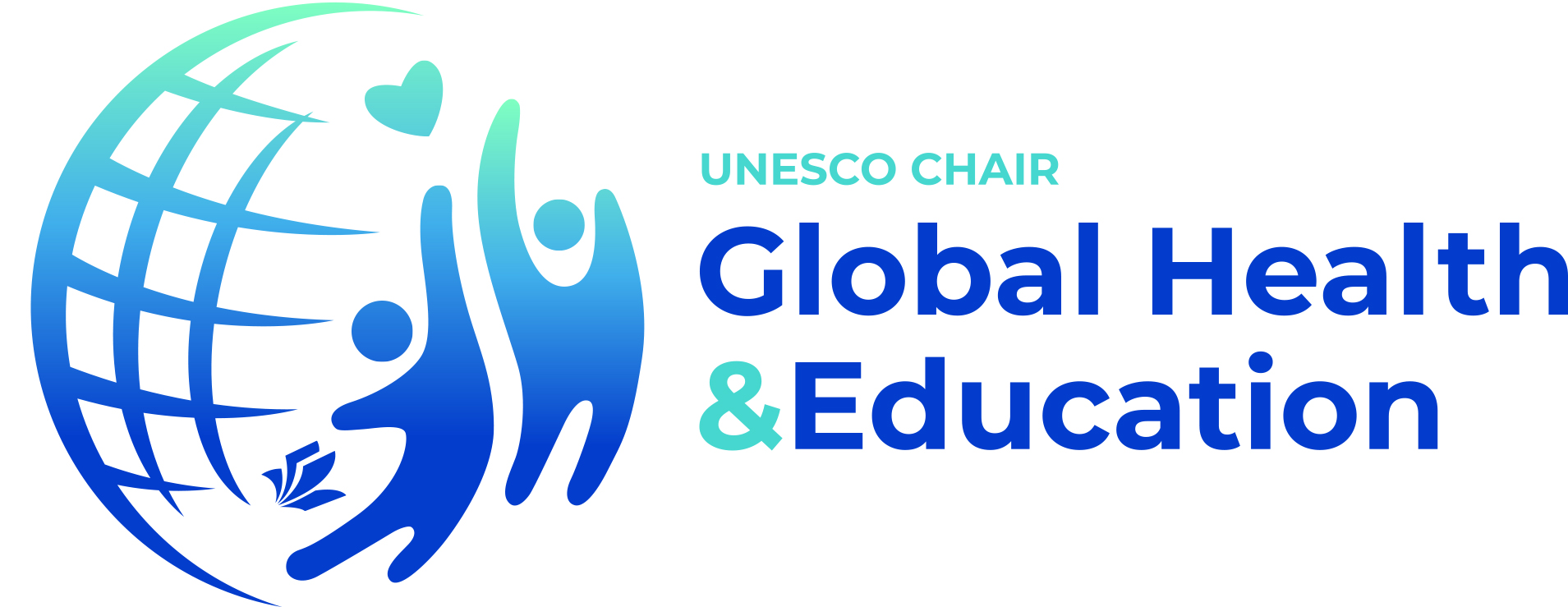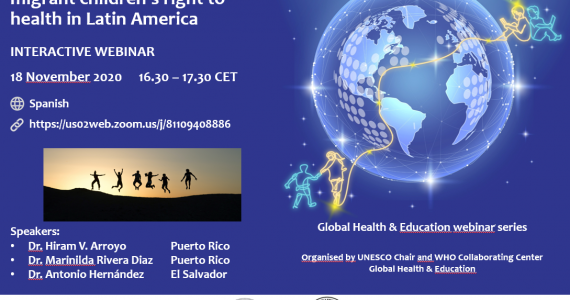Global health & Education webinar series
18 November 2020
Facilitator

Dr. Hiram V. Arroyo, Puerto Rico. Professor, Director, Department of Social Sciences, Director, World Health Organization (WHO/PAHO) Collaborating Centre for Training and Research in Health Promotion and Health Education, Faculty of Biosocial Sciences and Graduate School of Public Health, Medical Sciences Campus, University of Puerto Rico.
Speakers
Dr. Marinilda Rivera Díaz, Puerto Rico. Coordinator of the Doctoral Programme in Social Determinants of Health at the Graduate School of Public Health, Department of Social Sciences, Medical Sciences Campus, University of Puerto Rico. Education Delegate for Latin America and the Caribbean of the International Federation of Social Workers. Coordinator of the Working Group on International Health and Health Sovereignty of the Latin American Council of Social Sciences.
Dr. Antonio Hernández, El Salvador. Physician and coordinator of the Network of Health Systems and Policies of the Latin American Association of Social Medicine (ALAMES). Researcher of the Working Group on International Health and Sanitary Sovereignty of the Latin American Council of Social Sciences (CLACSO).
Spanish

The Journal Health Education is the official journal of our webinar series and aims to support the UNESCO Chair’s mission of sharing knowledge to support the global community.
Summary
The webinar will present a brief analysis of how globalization, through neoliberal policies, has worsened the living conditions of Latin American children, expelling them massively from their territories in search of survival strategies. Furthermore, the speakers will share with the audience the current state of migrant children in the region and the challenges that arise in the countries of origin, transit and destination to guarantee the right to health of this population.
Our speakers’contributions
The following three questions were addressed:
How has neoliberal globalization exacerbated migration processes in the Latin American region, particularly among women and children?
What is the status of migrant children in the region?
What challenges do migrant children in the region face in terms of the right to health?
The ppt of the webinar (in Spanish)
Resources
Mesa Melgarejo, L. & Espinel, M. (2020). Movimientos migratorios Sur Sur: condiciones socio-sanitarias de las mujeres migrantes en situación de prostitución en el espacio fronterizo de Colombia-Venezuela. IDEP Salud FLACSO República Dominicana. http://biblioteca.clacso.edu.ar/clacso/gt/20200908053817/MovimientosMigratoriosSurSur.pdf
VIH, migraciones y derechos humanos : perspectivas internacionales / Natalie Álamo … [et al.] ; compilado por Marinilda Rivera Díaz… [et al.].- 1a ed.- Ciudad Autónoma de Buenos Aires: CLACSO, 2019. Libro digital, PDF – (Grupo de Trabajo Salud Internacional y Soberanía Sanitaria coords. Gonzalo Basile y Marinilda Rivera Díaz). http://biblioteca.clacso.edu.ar/clacso/gt/20191202102019/VIH-Migraciones-y-Derechos-Humanos.pdf
Collantes, S. (2014). La infancia y las migraciones, un verdadero cóctel de vulnerabilidades. Revista Crítica. http://www.revista-critica.com/la-revista/monografico/analisis/589-la-infancia-y-las-migraciones-un-verdadero-coctel-de-vulnerabilidades
Pavez-Soto, I. (2016). La niñez en las migraciones globales: perspectivas teóricas para analizar su participación / Children in global migrations: theoretical perspectives to analyze their participation. Tla-Melaua. Mexico. http://www.scielo.org.mx/pdf/tla/v10n41/1870-6916-tla-10-41-00096.pdf
Comunicado de prensa (2018). UNICEF pide garantizar los derechos de los niños y niñas migrantes y refugiados en todo momento y en todo lugar. UNICEF. https://www.unicef.org/lac/comunicados-prensa/unicef-pide-garantizar-los-derechos-de-los-ni%C3%B1os-y-ni%C3%B1as-migrantes-y-refugiados





